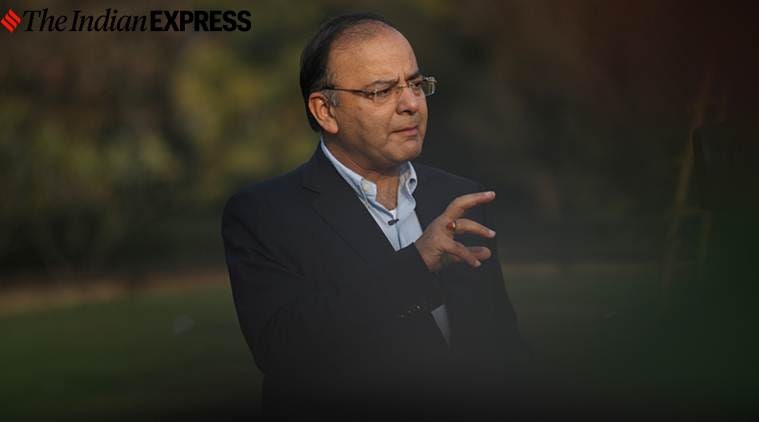
After emerging as a student leader at Delhi University in the volatile campus of the early 1970s, Arun Jaitley’s early engagement with politics was closely tied to the national mood of anti-government student politics of the time.
Jaitley joined the B.Com (Honours) programme at Shri Ram College of Commerce in 1970, after completing school at St Xavier’s School in Civil Lines. It was there that he met Sri Ram Khanna, an Akhil Bharatiya Vidyarthi Parishad (ABVP) activist, who persuaded him in 1971 to stand for elections for the position of Delhi University Students’ Union (DUSU) Councillor — at that time, elections to DUSU were indirect and the president was selected by 10 councillors. Jaitley won that first tryst with electoral politics. That year, he also joined his college’s union as debating secretary.
BJP MP Vijay Goel, who was his junior at SRCC, recalls him being an avid debater. “We went to many different colleges for inter-college debate competitions — sometimes we were on the same team, most times on different ones. He was a very talented debater and would win many awards,” he said. The following year, in 1972, Jaitley contested for the post of college president and won that election as well.
Khanna, who became DUSU president that year, recalls the time when they were drawn into student protests that culminated in a 50-day student strike in 1972-1973.
“The ABVP rank and file was involved in the movement and we were at its core. Arun was a prominent speaker. He took a leading part in rallies and demonstrations, some of which were lathi-charged and tear-gassed by police. This firmly gave our movement an anti-establishment colour. Arun began to rub shoulders with ABVP activists,” he said.
In 1973, the first direct elections to DUSU were held and all four seats were won by the ABVP — Jaitley, who had secured a seat in the Faculty of Law, became vice-president. The next year, Jaitley’s political journey in DU culminated in him being elected union president.
By that time, in 1974, campuses across the country were seething with political unrest, with the Nav Nirman student movement in Gujarat and the burgeoning movement in Bihar, where Jayaprakash Narayan took the lead. Jaitley and his peers in DU supported the JP Movement, and he became the convenor of the movement’s committee of student organisations, going to both Ahmedabad and Patna to support the agitation.
When the Emergency was declared in June 1975, Jaitley too, was caught up in its wave. Goel recalls that the day after its declaration, “he held the first procession against the Emergency on campus” and was arrested the same day. He was to remain in prison for the next 19 months. “It was in jail that his baptism into the RSS-BJP school took place, while sharing jail cells with the arrested leaders. He was a hardcore political activist when he was released in early 1977,” Khanna said.